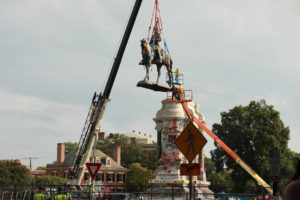
Captured Confederate Flags and Fake News in Civil War Memory
Earlier this summer, after a decades-long fight that gained traction over the past four years, the city of Charlottesville finally removed its infamous statues of Robert E. Lee and Stonewall Jackson. In doing so, Charlottesville joined the ranks of cities like New Orleans, Baltimore, and Richmond, southern cities that have ...
Read More
Read More
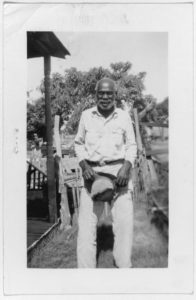
The Long Travails and Promises of Black Border Crossing
On September 19, 2021, Agence France-Presse (AFP) photographer Paul Ratje published vivid images of U.S. Border Patrol agents on horseback forcefully corralling Haitian migrants in Del Rio, Texas. When the images spread on social and news media, with commentators spotlighting the swinging leather strap in one agent’s hand, Homeland Security ...
Read More
Read More
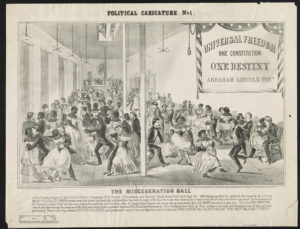
Fake News, Dirty Tricks, and Civil War Politics
Today’s political discourse includes frequent talk of “fake news” (a term which seems to only occasionally mean actual trickery rather than simply unfavorable reporting). Meanwhile, partisan political concerns sometimes seem thick with racial hostility, appealing to voters’ irrational fears. None of this is new. During the Civil War a handful ...
Read More
Read More
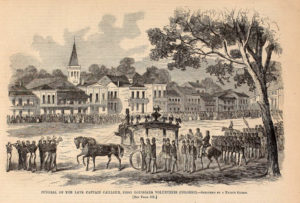
The Case for Posthumously Awarding André Cailloux The Congressional Medal of Honor
Now that a brigade of Confederate commanders has been hauled down from their pedestals, there’s scant consensus about what should take their place. In Richmond, Virginia, monumentalizing social justice activists is all the talk. Kentucky leans toward a rotating cast of deserving figures from across the spectrum.[1] But in my ...
Read More
Read More
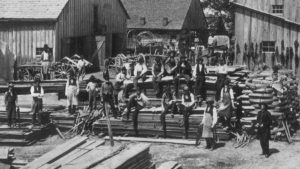
“I remember that Jasper Gray told me that he had herded sheep in Australia”
In 1906, Oscar Nelson, a local African American living in Tennessee, provided testimony on the extraordinary life of Jasper Gray, a United States Colored Troops (USCT) veteran, of the Thirty-First United Colored Infantry (USCI). Gray was a man whose entire life—in bondage and freedom—was one of constant physical movements and ...
Read More
Read More
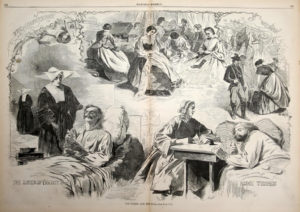
Women and Gender History of the Civil War Era: A Roundtable
We are delighted to publish three essays on women’s history of the Civil War Era by three leading scholars in the field. This roundtable draws on a lively session at last summer’s Society of Civil War Historians conference. Together these pieces provide a wide-ranging assessment of the field as a ...
Read More
Read More
The Gendered Consequences of Legislation Targeting Critical Race Theory
When Professor Silber asked us to reflect on what it means to study women and gender in the Civil War era, the news in the state of Texas, but also in other states, centered on efforts in the legislature to restrict what we teach in American history and the theoretical ...
Read More
Read More
Why We Should Forget the Civil War
Nearly twenty years ago, now, in a 2002 review essay on women in the Civil War, Thavolia Glymph concluded that “the period of the Civil War and Reconstruction remains the most racially gendered and regionally segregated historiographical space in US history.” Surveying the first wave of literature on the period ...
Read More
Read More
Introductory Remarks: The Study of Gender and the Civil War
When we began planning for the SCWH 2020 conference, one critical component of our planning entailed a special plenary that would survey the field of gender and Civil War history. This is a field of long-standing interest for me, going back to the publication of the co-edited collection I did ...
Read More
Read More
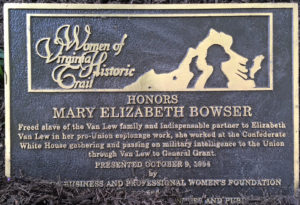
Jousting with History-on-a-stick: Centering African American Women in Civil War Public History
In April 2021, Governor Ralph Northam announced that Virginia would add five new markers focused on African American history to its state historical marker program. Playfully referred to as "history-on-a-stick," historical markers are intended to inform passersby about a significant person, place, or event. As useful as they might be ...
Read More
Read More
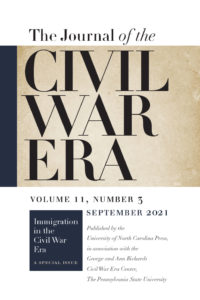
Previewing September 2021 Issue: Immigration in the Civil War Era
While recent immigration scholars have turned most of their attention to the twentieth century, many historians are also reexamining immigration policy in the mid-nineteenth century. Alison Clark Efford, in a recent review essay in this journal, reflects on how nineteenth-century immigration historiography is marked by an “imperial framework in which the ...
Read More
Read More
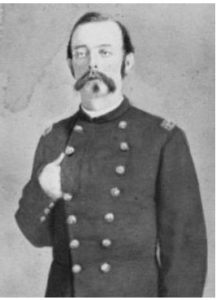
Retracing Hallowed Grounds From the Battle of the Crater
For Black men during the Civil War, military service in the U.S. Colored Troops (USCT) offered a hopeful pathway towards citizenship and equality. Freedom would be theirs by the sword. However, to temper prejudicial Northern attitudes concerning the arming of black men, the U.S. War Department’s Bureau of Colored Troops ...
Read More
Read More
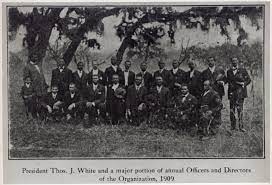
Contested Freedoms: Black Life in Texas During Juneteenth
On June 17, 2021, President Joe Biden, with the stroke of a pen, cemented Juneteenth as a federal holiday in the United States. The momentous occasion was long overdue. Modern advocates, including Ralph Abernathy Lula Briggs Galloway, publicly reignited attention to the importance of Juneteenth to honor the lives of ...
Read More
Read More
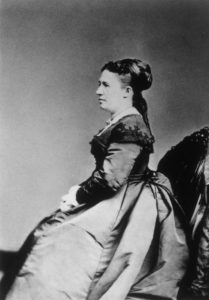
Julia Dent Grant’s Personal Memoirs as a Plantation Narrative
Julia Dent Grant holds the unique distinction of being the first in a line of distinguished First Ladies to have written a memoir. Following the death of her husband Ulysses S. Grant in 1885, Julia Grant began contemplating the idea of telling her own life story and sharing insights into ...
Read More
Read More

Juneteenth, Public Memory, and Teaching Reconstruction Through an International Perspective
A few weeks ago, the United States celebrated Juneteenth as a federal holiday for the first time. The bill recognizing the emancipation celebration passed the Senate and House and was signed into law by President Joe Biden in a matter of days, just in time for Americans to celebrate this ...
Read More
Read More
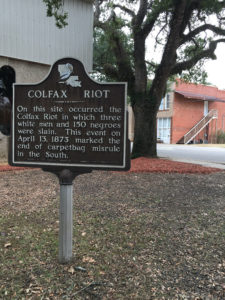
Removing the White Supremacy Marker at Colfax, Louisiana: A 2021 Success Story
On May 15, 2021, state officers, parish officials, and private citizens gathered in Colfax, Louisiana to watch local contractors remove an historical marker in front of Grant Parish Courthouse. Erected on June 14, 1951, the sign’s bold white letters announced that a civil disturbance claimed the lives of “three white ...
Read More
Read More